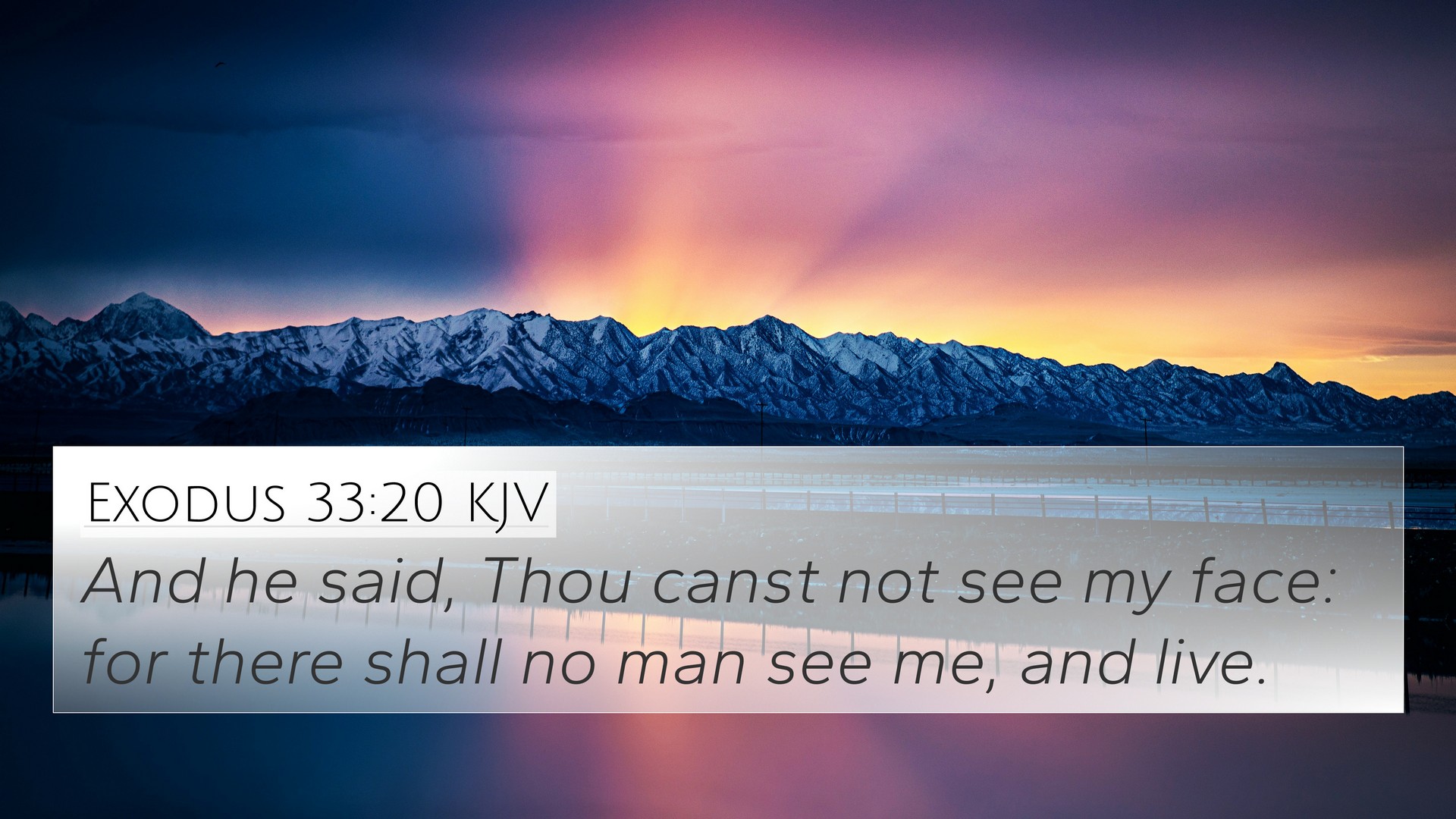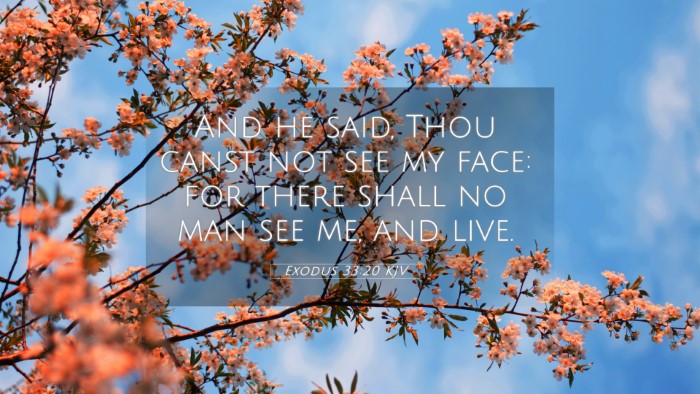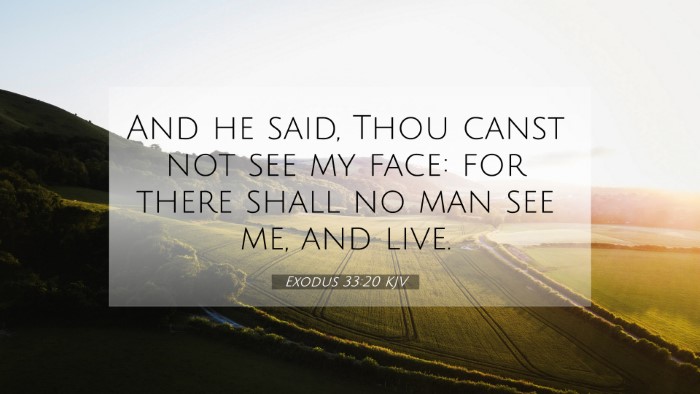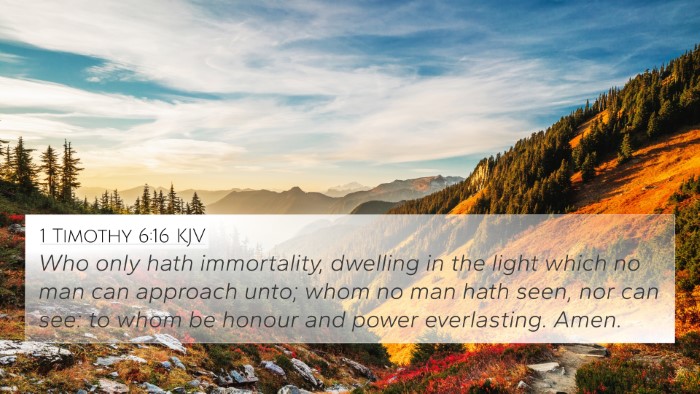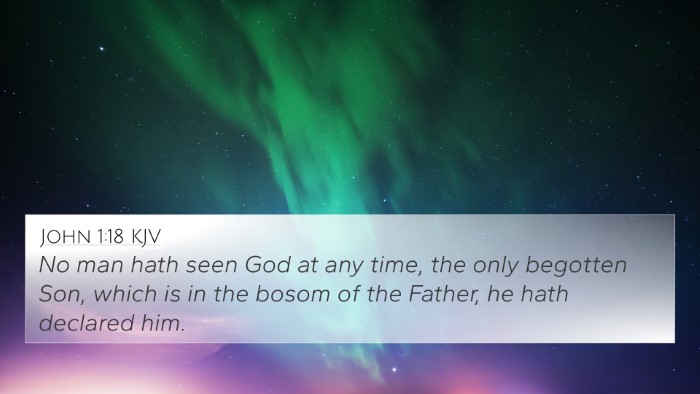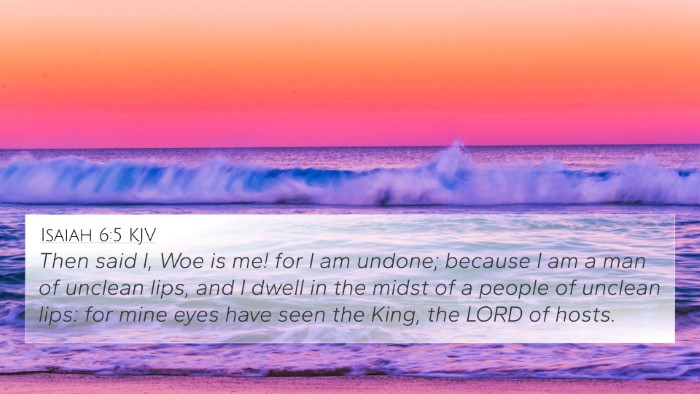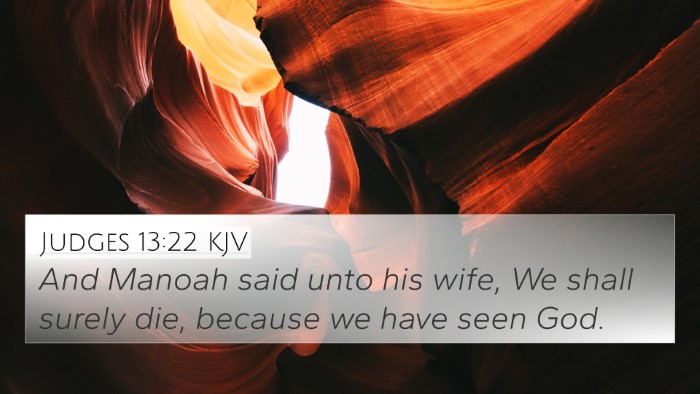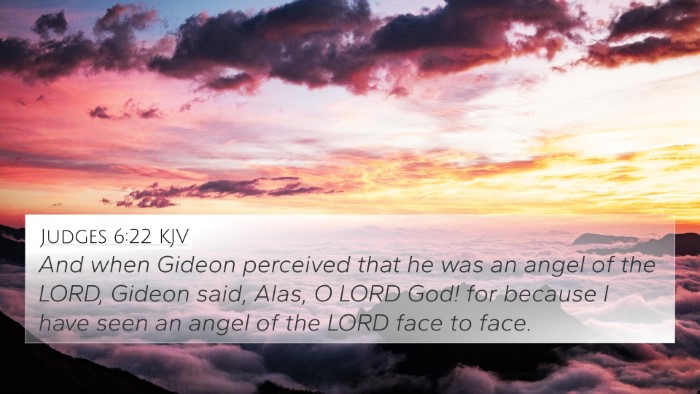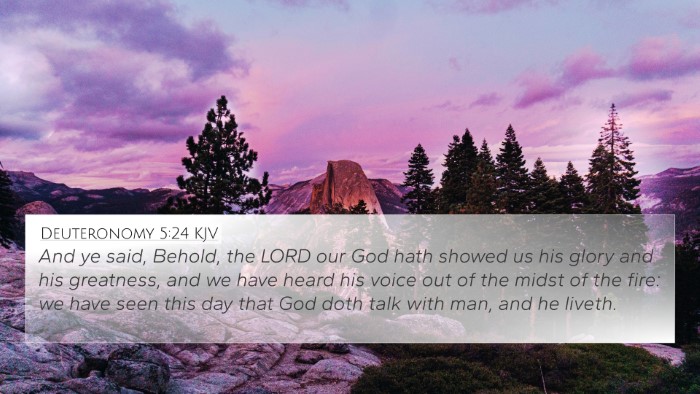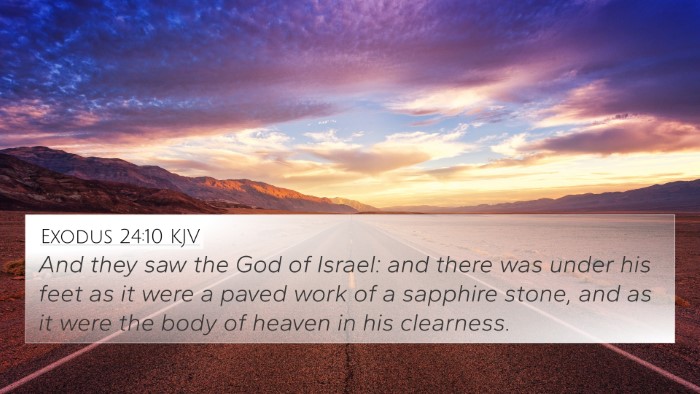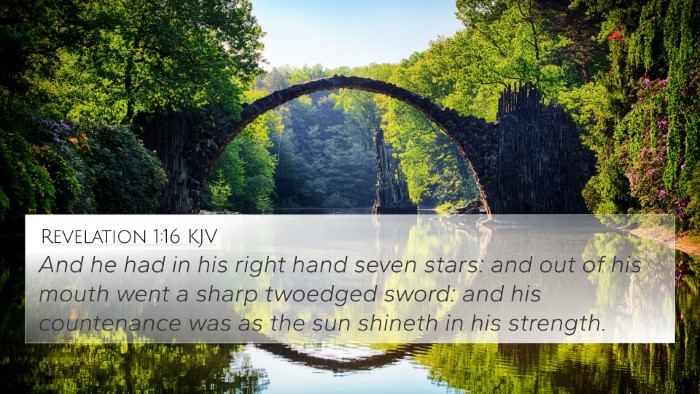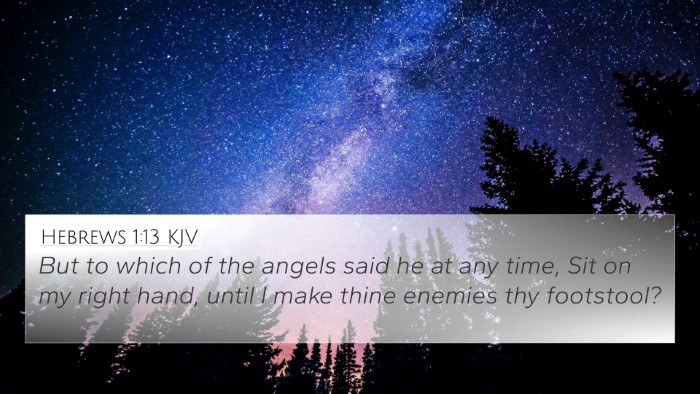Understanding Exodus 33:20
Verse: Exodus 33:20 states, "But He said, ‘You cannot see My face; for no man shall see Me and live.’"
Summary of Meaning
Exodus 33:20 is a profound verse revealing God's nature and the limitations of human understanding. In this context, Moses desires to see God's glory, yet God reveals that to see His face is beyond human capacity due to His divine holiness. The implications are significant both for the Israelites at that time as well as for all believers today.
Theological Insights
- God's Holiness: Matthew Henry emphasizes that this verse illustrates God's absolute purity and holiness. Any direct encounter with God's full glory would overwhelm and consume mortal beings.
- Human Limitations: Adam Clarke notes that humans are inherently flawed, and God's glory is too magnificent for us to behold in our sinful state.
- Mediation through Christ: Albert Barnes suggests that through Jesus Christ, believers are offered a way to approach God, contrasting the Old Testament revelation with the New Testament promise of seeing God through faith.
Bible Verse Cross-References
To deepen understanding, several passages relate directly to Exodus 33:20:
- 1 Timothy 6:16 - "Who alone has immortality, dwelling in unapproachable light, whom no one has seen or can see." This verse reinforces the idea of God's incomprehensibility.
- John 1:18 - "No one has seen God at any time. The only begotten Son, who is in the bosom of the Father, He has declared Him." This highlights that Jesus makes God known while still maintaining His divine mystery.
- Romans 3:23 - "For all have sinned and fall short of the glory of God." This underscored the reason for God's revelation being hidden from full view.
- Isaiah 6:5 - "Woe is me, for I am undone; because I am a man of unclean lips, and I dwell in the midst of a people of unclean lips." Isaiah's reaction illustrates the holiness of God and the human condition.
- Revelation 22:4 - "They shall see His face, and His name shall be on their foreheads." This offers hope of full communion with God in the future for believers.
- Hebrews 12:14 - "Pursue peace with all people, and holiness, without which no one will see the Lord." This points to the inherent need for holiness to approach God.
- Exodus 34:29-30 - After Moses spoke with God, his face shone, indicating that close encounters with God impart a reflection of His glory, albeit indirectly.
Connections Between Bible Verses
In Exodus 33:20, we find a rich context of connections that enhance the understanding of divine revelation:
- The phrase “no man shall see Me and live” suggests the theme of intercession, which can be further explored in Hebrews 4:16 that invites believers to approach God's throne with confidence.
- Understanding God's invisibility can also be cross-referenced with Colossians 1:15 that identifies Christ as the image of the invisible God.
- The manifestation of God's presence in other forms such as the burning bush (Exodus 3:2) highlights the protective nature of God’s revelation to humanity.
Tools for Bible Cross-Referencing
To explore more of these connections and insights, one can utilize various resources:
- Bible Concordance: Essential for finding specific words and themes throughout scripture.
- Bible Cross-Reference Guide: Directs readers to related verses for deeper study.
- Cross-Reference Bible Study: Methods to engage with scripture comparatively and thematically.
Conclusion
Exodus 33:20 invites believers to reflect on the profound nature of God's holiness and the grace afforded through Christ. The interplay between God's glory and our ability to perceive Him encourages an ongoing dialogue in the Scriptures, offering rich theological insights and practical applications through cross-referencing.
